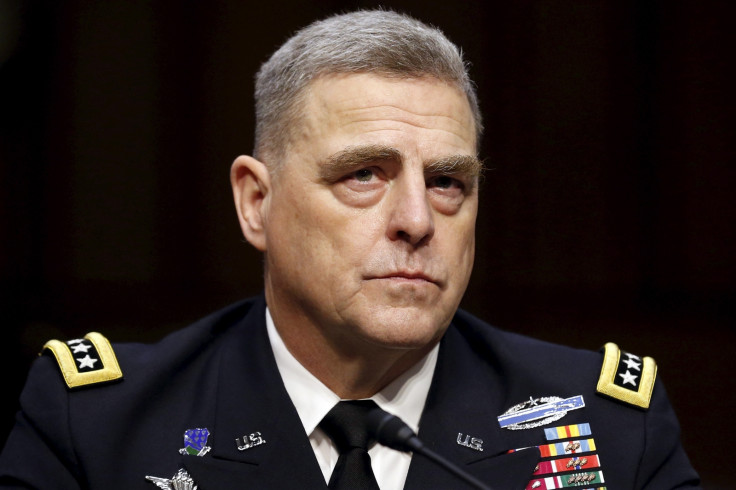Islamic State: New US Army chief calls for US 'spotters' to be embedded with Iraqi troops to direct air strikes

The US Army's new Chief of Staff advocated embedding US 'spotters' with Iraqi military forces to direct air strikes against Islamic State (Isis) positions.
General Mark Milley told a Senate confirmation hearing on 21 July that US air controllers could provide "more effective close air support" and the step should be "seriously considered", reports Reuters.
He conceded there would be problems, though, adding that there would be "lots of issues with that, with security of our people".
The step would mark an escalation in US involvement in the fight against IS in Iraq, with US action thus far limited to air strikes against the jihadist group, and training for Iraqi security forces.
Iraqi forces supported by coalition air strikes and Shia militias have so far failed to make significant progress in rolling back IS, and famously fled when Isis militants swept into Mosul in June, 2014, and more recently in Ramadi.
At the hearing Milley, who served in both Iraq and Afghanistan, said that after the US withdrew from Iraq in 2011, the Iraqi army's chain of command was "decimated", troops were not getting "proper pay" and training "went down the tubes".
Major shake-up
"If three or four years go by and you lack training, you lack money, you lack equipment, you lack spare parts and most importantly you lack a competent, capable, committed leadership, then you can certainly understand why units fell apart," Milley said.
The hearings come amid a major shake-up in US military top brass, with current US Army Chief of Staff Ray Odierno's four-year term to end in several weeks, and Marine Commandant Joseph Dunford to replace Army General Martin Dempsey as chairman of the joint chiefs of staff.
Dempsey has rejected the proposal for the widespread use of US air controllers with the Iraqi military, but said they could be used for key battles.
Milley also said he agreed with Dunford's assessment of Russia as the US's main national security threat, and advocated sending "lethal aid" to Ukrainian forces battling Russian-backed militants in east Ukraine.
"The activity of Russia since 2008 has been very, very aggressive," he said. "They've attacked and invaded Georgia, they've seized the Crimea, they've attacked into the Ukraine. That's worrisome."
© Copyright IBTimes 2025. All rights reserved.




















